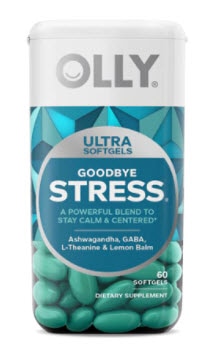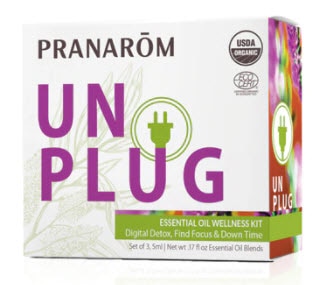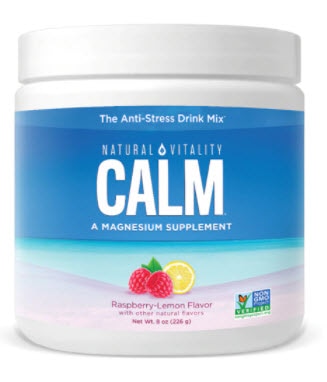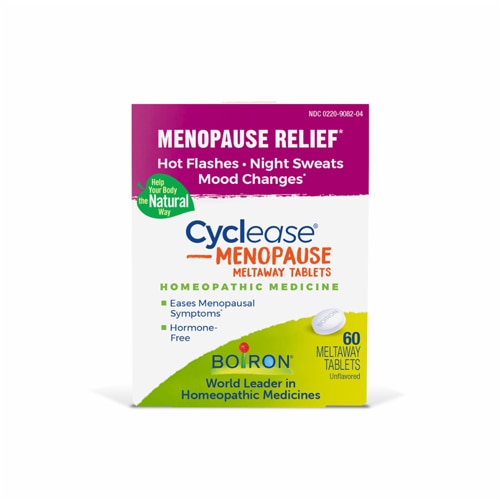A recent Gallup poll found that Americans'
mental health ratings have reached an astonishing new low. Each year since 2001, Gallup has asked Americans as part of its annual Health and Healthcare survey to describe their own mental or emotional wellbeing as excellent, good, fair, or poor. Those rating their mental health as excellent or good has typically ranged from 81–89 percent, until this year's 76 percent, that is. In fact, the latest “excellent” ratings are eight points lower than Gallup has measured in
any prior year.

While we can all agree that 2020 was a very unusual year, there may always be reasons to feel stressed, anxious or depressed. The good news is that even if we cannot alter the conditions that trigger these feelings, we
can change the way we respond, and develop greater emotional resilience. Here are some strategies to help empower mental and emotional wellbeing, naturally:
1. Take an emotional inventory
Many of us, as we rush through life, may unconsciously suppress the inner voices that tell us we are out of balance in our work, relationships, lifestyle habits or other areas. We can change that by paying closer attention to the factors that impact our wellbeing. Taking an emotional inventory is simply writing down our feelings about the current state of our lives, honestly and without judgement, to highlight areas of concern. After that, books, classes, counseling, supportive allies and various holistic therapies can help us make changes to regain a healthy balance, if needed.
2. Increase self-care
Excellent
self-care on all levels ? mentally, physically and emotionally ? would ideally be a high daily priority for all of us, and not just for our own benefit. Treating ourselves well also sets us up to effectively help others. Self-care includes what we eat, how we move and even the way we think, given the scientifically validated mind-body connection we humans share.
1 To optimize self-care, why not take time each day to walk in the fresh air, breathe deeply, rest as needed, enjoy fresh whole foods and express
gratitude for your life? You might be surprised by what a potent collective prescription this can be for mental/emotional wellbeing.
3. Upgrade your diet
Replacing processed/junk foods and refined, sugary items with vibrant whole foods such as fruits, veggies,
whole grains,
beans, legumes,
nuts and
seeds leads to better wellbeing on many levels.
And we typically start reaping benefits rather quickly, not only in how we feel physically, but mentally and emotionally as well. The healthier our diet, the more likely we are to experience better concentration, improved sleep, efficient waste elimination and elevated feelings of wellbeing.
4. Embrace Omega-3s
Omega-3 essential fatty acids Eicosapentaenoic acid (EPA) and docosahexaenoic acid (DHA) are the unique, beneficial essential fatty acids (EFAs) found in cold water fish.
2 While DHA and EPA can be obtained from high-quality fish oil capsules, vegans have traditionally opted for plant sources of EFAs, such as flaxseeds, pistachios, walnuts, and almonds. The challenge is, these foods require a conversion of ?-linolenic acid (ALA) to EPA and DHA in the body, which is a slow and inefficient process.
3 Given that EPA and DHA have been found to be low in vegetarians and virtually absent in vegans,
4 this
plant-based source of both DHA and EPA offers a helpful alternative.
†
5. Nourish against stress
There are many natural ways to help alleviate mild-to-moderate feelings of
stress in our lives, which may also improve mental and emotional wellbeing. We can start by replenishing key vitamins that are rapidly depleted in difficult times. For example:
B-complex vitamins help reduce symptoms of stress, partly because they lower serum homocysteine. High levels of this amino acid are associated with stress and increased risk of other serious health problems.
5 In one study examining how high dose B vitamins affect mood and psychological strain from chronic work stress, the B-complex treatment group reported significantly lower personal strain and reduced confusion and depression after 12?weeks.
6
Vitamin C supports immune wellness and helps to reduce cortisol. Long-term exposure to stress hormones like cortisol increases our risk of many health problems, from heart disease and obesity to anxiety and depression. One study, evaluating the effects of vitamin C (500 mg twice daily) on stress, found a 71 percent reduction in mood disturbance and a 51 percent reduction in psychological distress.
7 Daily supplementation is optimal, especially if you aren’t getting enough in your diet.
†
With this information in hand, our forecast for optimal mental and emotional wellbeing in 2021 is sunny indeed.
†These statements have not been approved by the Food and Drug Administration. These products are not intended to diagnose, treat, cure or prevent disease.
Featured products:


 References:
1
References:
1https://www.ncbi.nlm.nih.gov/pmc/articles/PMC1456909/
2Nutr J. 2004; 3: 20. DHA and EPA
3https://pubmed.ncbi.nlm.nih.gov/25369925/
4https://pubmed.ncbi.nlm.nih.gov/25369925/
5https://www.ncbi.nlm.nih.gov/pmc/articles/PMC4772032/
6https://onlinelibrary.wiley.com/doi/abs/10.1002/hup.1229
7https://pubmed.ncbi.nlm.nih.gov/23885048/
 While we can all agree that 2020 was a very unusual year, there may always be reasons to feel stressed, anxious or depressed. The good news is that even if we cannot alter the conditions that trigger these feelings, we can change the way we respond, and develop greater emotional resilience. Here are some strategies to help empower mental and emotional wellbeing, naturally:
While we can all agree that 2020 was a very unusual year, there may always be reasons to feel stressed, anxious or depressed. The good news is that even if we cannot alter the conditions that trigger these feelings, we can change the way we respond, and develop greater emotional resilience. Here are some strategies to help empower mental and emotional wellbeing, naturally:


 References:
1https://www.ncbi.nlm.nih.gov/pmc/articles/PMC1456909/
2Nutr J. 2004; 3: 20. DHA and EPA
3https://pubmed.ncbi.nlm.nih.gov/25369925/
4https://pubmed.ncbi.nlm.nih.gov/25369925/
5https://www.ncbi.nlm.nih.gov/pmc/articles/PMC4772032/
6https://onlinelibrary.wiley.com/doi/abs/10.1002/hup.1229
7https://pubmed.ncbi.nlm.nih.gov/23885048/
References:
1https://www.ncbi.nlm.nih.gov/pmc/articles/PMC1456909/
2Nutr J. 2004; 3: 20. DHA and EPA
3https://pubmed.ncbi.nlm.nih.gov/25369925/
4https://pubmed.ncbi.nlm.nih.gov/25369925/
5https://www.ncbi.nlm.nih.gov/pmc/articles/PMC4772032/
6https://onlinelibrary.wiley.com/doi/abs/10.1002/hup.1229
7https://pubmed.ncbi.nlm.nih.gov/23885048/



